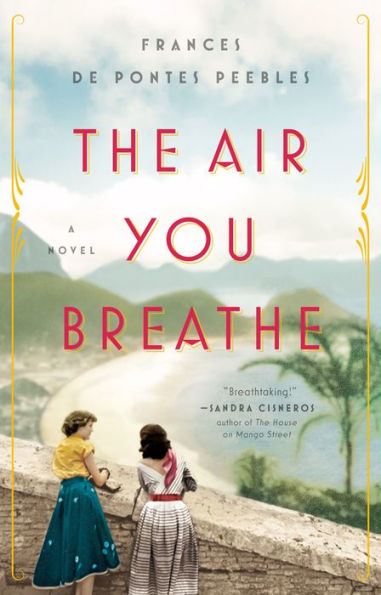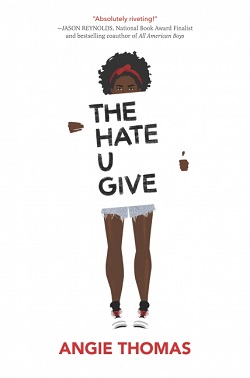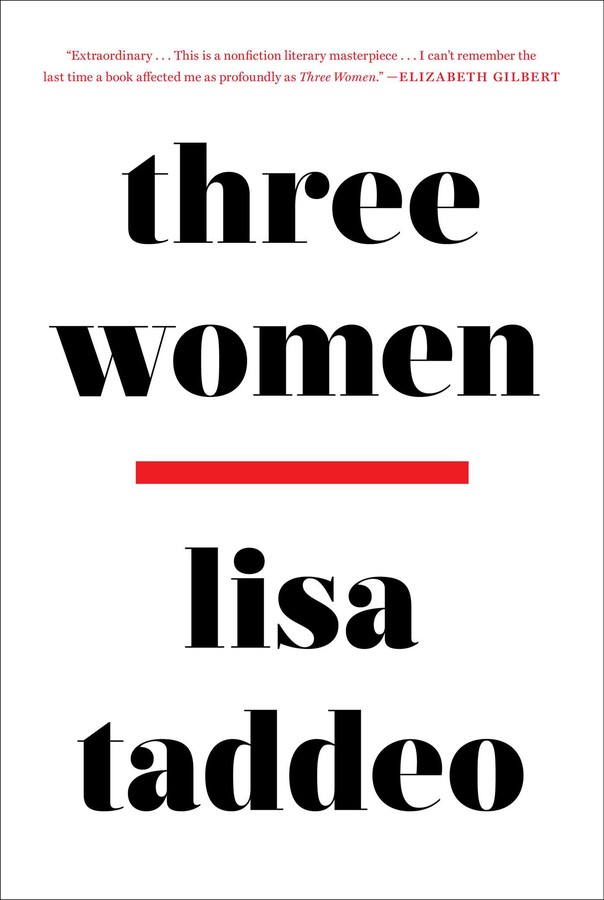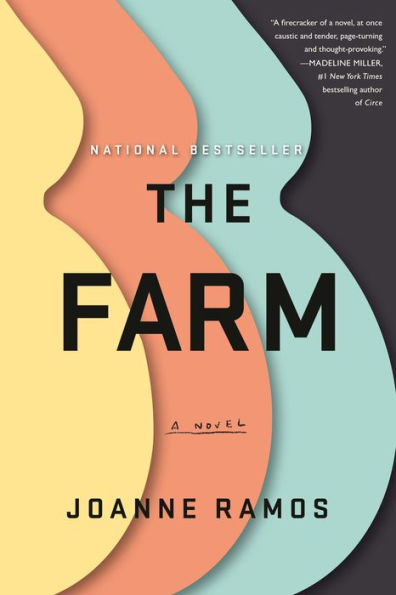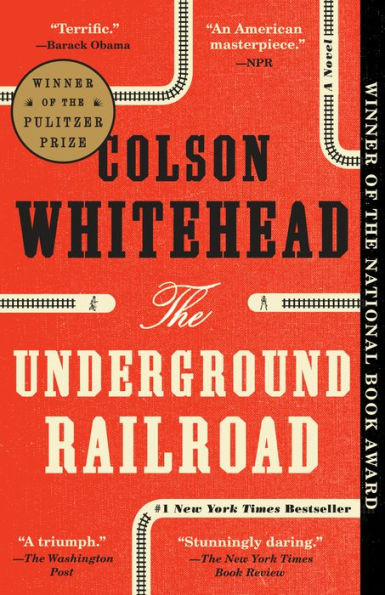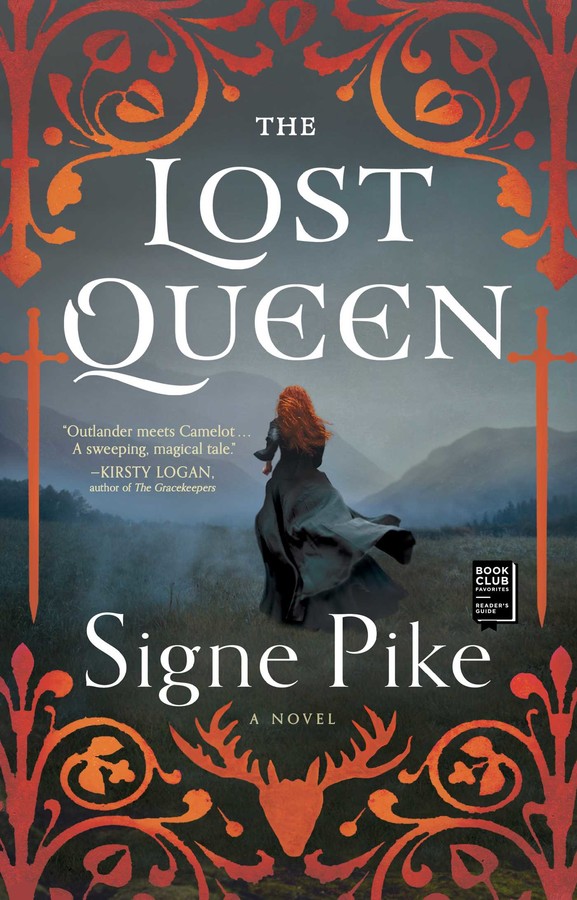I’m a bookworm, and book club is one of the highlights of my month—luckily, I’m in multiple. I’m in one that meets monthly, and themes the food based on the book. I just started another earlier this year with my friends from high school, and I work in publishing and run a corporate book club program. (Can you tell I love reading?!) I’ve read about 50 books so far this year, and some have really stood out to me as excellent stories to spark conversation with fellow booklovers. So whether you’re in a book club now, want to be, or just really love reading and talking about books to anyone, I have suggestions on your next pick: a few may break your heart, a number can invigorate you, and all will be great for discussion.

8 Best Book Club Books I’ve Read So Far This Year
I really like stories about friendship. THE AIR YOU BREATHE is right up my alley: it’s a friendship saga that takes place in Brazil, set to the tune of bossa nova. Two girls become friends as children in the 1930s, when one is the housemaid and the other is the daughter of the rich plantation owner. They escape to Rio de Janeiro to start playing music together—one has a beautiful voice, and the other is a songwriter. As the years go by, and their music takes off, their friendship becomes complex, with envy, love, and pride twisting in and out of their every interaction. This book ultimately asks what we owe another person when your life is what it is because of them. I came out of this novel feeling as conflicted as I felt while reading it. Dores and Graca are sometimes terrible to each other, but there’s a connection, and a sort of love that changes over time as they become adults and different people. Frances de Pontes Peebles also writes in such a way that I desperately needed to put on bossa nova. The novel felt like a piece of music in its complexity and ups and downs. I haven’t met anyone else who has read this one yet, so someone please pick it up and let’s talk about our feelings toward Graca
My favorite thing about this heartwarming mystery was Joanna Cannon’s unmatched ability to get inside someone’s head. I was truly taken aback by how well I understood Florence’s (the main character’s) state of mind. She felt real. One reason for that impression, I later learned, is that Joanna Cannon has worked as a psychiatrist, so she’s been trained to understand the way people think and feel. Florence jumps off the page, and even at her grumpiest moments, she’s very likeable. She lives at an old-age home, and one day a man appears who looks like a man who died 60 years ago. It’s unsettling to her, and she goes off to uncover the truth about him. During all of this, she talks to her best friend of sixty years, Elsie. I can’t say much else without giving it away, but ultimately, I was left with the understanding that actions are different from intent, and everyone has secrets in their past. It’s a beautiful story about friendship, regret, and redemption wrapped in a little mystery with the most emotionally real (and wonderful!) characters—a good one to read with friends. Read the full review of THREE THINGS ABOUT ELSIE.
MENTIONED IN:
Book clubbers, take note: Alice Hoffman’s most recent novel was one of the most magical, sad, and beautiful stories about love and survival that I’ve ever read. There are a lot of devastating moments that will make you take a step back and think (and cry) about life—and your mother. The book starts in Berlin in 1941: Hanni is trying to find a way to help her daughter Lea escape the city and head west, toward Paris. She’s able to convince Etti, the daughter of a rabbi, to create a golem—a mystical Jewish creature—to help protect and guide Lea out, in exchange for money to enable Etti to escape herself. The book then follows the two girls over the years and across Europe as Ava (the golem) becomes a sort of stand-in mother for Lea (and a symbol of a mother’s love—cue my sobbing) and as Etti becomes a resistance fighter during the war. The novel becomes this fairy tale that speaks to death and life and love. My heart broke about five times, but with all the magic, love, and courage, it became whole again. The first thing I did after I finished this book? I called my mom.
Angie Thomas’s first novel is one I didn’t read until two years after it was published (and I still haven’t seen the movie . . . shh!), but after two years it still offers readers just as much relevance, poignancy, and emotional gravitas. This book—about a girl who witnesses the murder of her friend, an unarmed black teenage boy, by a police officer and the effects of that killing on her neighborhood, her family, and her life—is truly unputdownable. It’s inspired by, and completely mirrors, current events, examines unjust societal norms, and communicates the emotional taxation and far-reaching effects of racism and hate crimes through the eyes of a high-school girl. It’s a really amazing story, perfect for clubs who care about social justice, readers who love stories about family and community, or those who like to expand their understanding of current issues.
MENTIONED IN:
If your club is looking for a book that will shock and destroy you—and I mean that in the best way, as only a good book can—pick up THREE WOMEN. I had so many feelings after finishing it that I asked everyone in the office if they had read it, and I even mailed a copy to my stepmom (some people may question this decision based on the contents . . . but she and I are close) so I could just talk to someone about all of the emotions stirred up by this incredible true story about women, desire, sex, and power. Some of it is gut-wrenching, like the (again, true) story of the woman whose married teacher seduced her while she was in high school; some of it heartbreaking, like the woman who is looking for love and affection and has an affair because she doesn’t get those things in her marriage; and some of it is like peeling a curtain back on the inner workings of a woman’s desire when her husband has a particular kink: watching her have sex with other men. Trust me, the book elicits many emotions, and you’ll have a lot to discuss.
“Extraordinary…A nonfiction literary masterpiece…I can’t remember the last time a book affected me as profoundly as Three Women.” —Elizabeth Gilbert
“This is one of the most riveting, assured, and scorchingly original debuts I’ve ever read.” —Dave Eggers
“[An] instant feminist classic...Utterly engrossing...Game-changing.” —O, The Oprah Magazine
Desire as we’ve never seen it before: a riveting true story about the sex lives of three real American women, based on nearly a decade of reporting.
It thrills us and torments us. It controls our thoughts, destroys our lives, and it’s all we live for. Yet we almost never speak of it. And as a buried force in our lives, desire remains largely unexplored—until now. Over the past eight years, journalist Lisa Taddeo has driven across the country six times to embed herself with ordinary women from different regions and backgrounds. The result, Three Women, is the deepest nonfiction portrait of desire ever written and one of the most anticipated books of the year.
We begin in suburban Indiana with Lina, a homemaker and mother of two whose marriage, after a decade, has lost its passion. She passes her days cooking and cleaning for a man who refuses to kiss her on the mouth, protesting that “the sensation offends” him. To Lina’s horror, even her marriage counselor says her husband’s position is valid. Starved for affection, Lina battles daily panic attacks. When she reconnects with an old flame through social media, she embarks on an affair that quickly becomes all-consuming.
In North Dakota we meet Maggie, a seventeen-year-old high school student who finds a confidant in her handsome, married English teacher. By Maggie’s account, supportive nightly texts and phone calls evolve into a clandestine physical relationship, with plans to skip school on her eighteenth birthday and make love all day; instead, he breaks up with her on the morning he turns thirty. A few years later, Maggie has no degree, no career, and no dreams to live for. When she learns that this man has been named North Dakota’s Teacher of the Year, she steps forward with her story—and is met with disbelief by former schoolmates and the jury that hears her case. The trial will turn their quiet community upside down.
Finally, in an exclusive enclave of the Northeast, we meet Sloane—a gorgeous, successful, and refined restaurant owner—who is happily married to a man who likes to watch her have sex with other men and women. He picks out partners for her alone or for a threesome, and she ensures that everyone’s needs are satisfied. For years, Sloane has been asking herself where her husband’s desire ends and hers begins. One day, they invite a new man into their bed—but he brings a secret with him that will finally force Sloane to confront the uneven power dynamics that fuel their lifestyle.
Based on years of immersive reporting, and told with astonishing frankness and immediacy, Three Women is a groundbreaking portrait of erotic longing in today’s America, exposing the fragility, complexity, and inequality of female desire with unprecedented depth and emotional power. It is both a feat of journalism and a triumph of storytelling, brimming with nuance and empathy, that introduces us to three unforgettable women—and one remarkable writer—whose experiences remind us that we are not alone.
MENTIONED IN:
THE FARM takes the idea of the business of surrogacy to a whole new level. Imagine that poor women were recruited to carry rich people’s babies, sent to a farm upstate for nine months, were not allowed to leave, and had to do all the things the “expecting” parents wanted: eating only specific foods, ignoring cravings, spending a certain number of hours with headphones blasting classical music on their bellies . . . their every move controlled. That’s the premise of THE FARM. Admittedly, the book sounded a bit more like a domestic thriller when I first picked it up, and a few of the plot points made me feel that it was going to take a very dark turn. However, it continually surprised me. Instead of focusing on all of the horrible things that could happen—like if one of the surrogate mothers is diagnosed with cancer—the novel explores ethical issues one would not even think of. Does the woman paying millions of dollars for the surrogate to carry her child decide to end the pregnancy for the surrogate’s health? Or do they not tell the surrogate? Questions like these are broached throughout the book, which takes a deep dive into class, societal expectations, and motherhood. This is great fodder for discussion, so get ready to talk it out.
Okay, so I was really behind on this one. It was published in 2016, and I just read it this summer. Lucky for me, I got my mother’s copy, which was completely covered in Post-it notes and margin scribbles because she read it in a lit class she took when she went back to school. That should be enough to show that this is a great book club book—classrooms are using it! But to drive the point home: Everyone you know who might have ranted and raved about it is totally right. It is exceptionally well-written, both in a broad, novel sense—with seamless incorporation of magical realism, beautiful storytelling, emotional complexity—and down to each individual sentence. Colson Whitehead really develops the connection between the America the past and America today, and what “America” means—and to whom that meaning applies. For example, these quotes: “Stolen bodies working stolen land. It was an engine that did not stop, its hungry boiler fed with blood.” “That’s what you do when you take away someone’s babies—steal their future. Torture them as much as you can when they are on this earth, then take away the hope that one day their people will have it better.” Extremely powerful, extremely gutting, and extremely relevant: It’s an excellent book club pick three years after publication, and will continue to be so. Read the full review of THE UNDERGROUND RAILROAD.
MENTIONED IN:
I ended up getting into a really good conversation with a colleague about women, power, and female roles after reading this historical fantasy, and that’s because it’s a good discussion book! Signe Pike’s main character, Languoreth, is based on a real-life queen of Strathclyde—a kingdom that once existed where current-day Scotland is (circa the Dark Ages)—her love affairs, and the fight for keeping the Old Ways alive when Christianity is sweeping through the area and Kings are at war. Cool fact: Languoreth is/was also the twin sister of a druid who inspired the legend of Merlin—and that also becomes a part of this novel. So not only is there a lot to unpack historically, and in terms of legendary comparisons, but Pike also focuses heavily on power—the power that, as a woman, is taken away from Languoreth, and the type she could actually yield. She does it with a good dose of mysticism and magic as well, which is why this was described as “Outlander meets Camelot.” It’s also got a love triangle tied up in political warfare, so get ready to pick sides and debate with your friends if you’re Team Maelgwn or Team Rhydderch.
MENTIONED IN:

